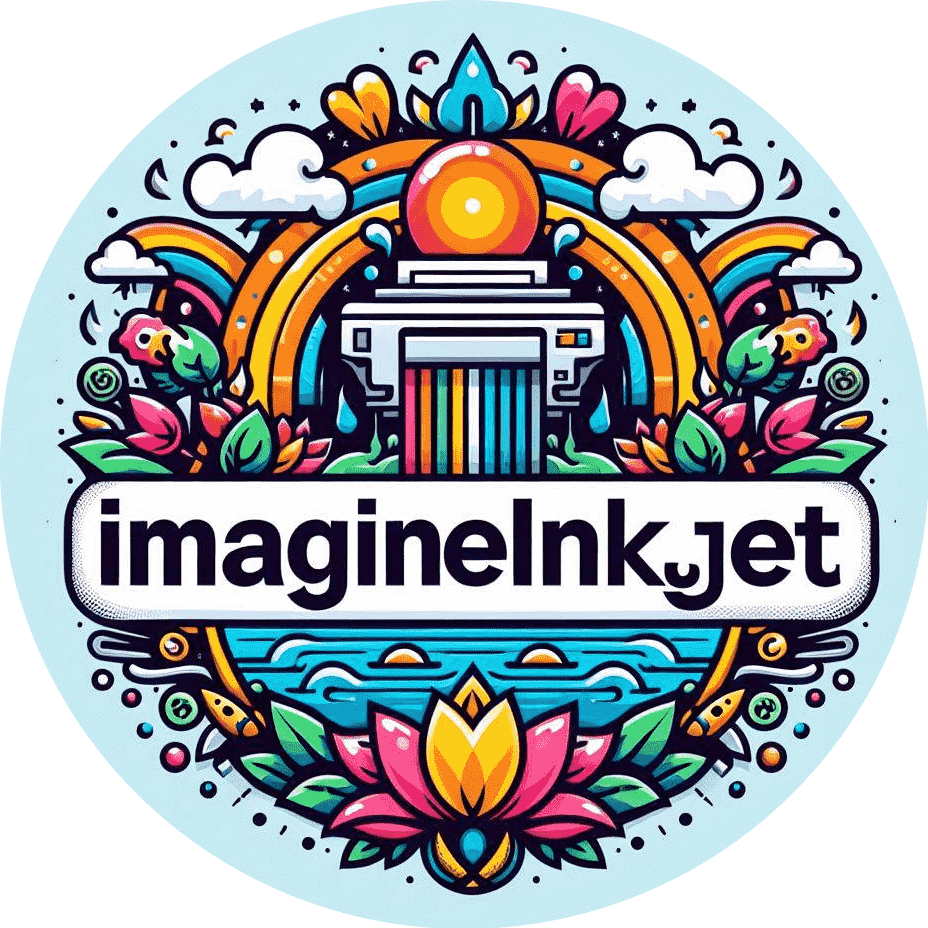Introduction to Blogging
In today’s digital age, blogging has become more than just a hobby; it’s a powerful tool for self-expression, sharing knowledge, and even making a living. But what exactly is a blog? Essentially, a blog is a regularly updated website or online platform where individuals or groups of people share their thoughts, experiences, and expertise on a particular subject or niche. Whether you’re passionate about travel, fashion, food, or personal development, there’s a niche for everyone in the vast blogosphere.
In today’s digital age, where the internet serves as a gateway to boundless opportunities, blogging emerges as a beacon of self-expression and community-building. But what exactly is blogging? Beyond the mere act of typing words onto a screen, blogging encapsulates a world where individuals, armed with nothing but their thoughts and experiences, wield the power to captivate, inform, and inspire audiences spanning the globe.
At its core, a blog is more than just a collection of words; it’s a canvas where personalities flourish, ideas converge, and connections blossom. From passionate travelers documenting their adventures to aspiring chefs sharing their culinary creations, each blog represents a unique slice of life, a window into the soul of its creator.
However, the allure of blogging extends far beyond personal expression. In an era where traditional media channels are increasingly crowded and controlled, blogs offer a sanctuary for authentic voices to resonate, unrestricted by editorial agendas or corporate interests. They serve as hubs of knowledge, creativity, and diversity, democratizing the dissemination of information and fostering a sense of community among like-minded individuals.
In this beginner’s guide to blogging, we’ll delve into the intricacies of this dynamic medium, exploring everything from choosing your blogging niche to mastering the art of content creation and promotion. Whether you’re a seasoned wordsmith or a novice storyteller, join us on a journey through the vibrant world of blogging, where every keystroke holds the potential to illuminate minds, touch hearts, and shape the course of human discourse.
Choosing Your Blogging Niche
One of the first steps in starting a successful blog is choosing the right niche. Your niche is essentially the topic or subject matter that your blog will focus on. It’s important to select a niche that you’re passionate about and knowledgeable in, as this will not only make the writing process more enjoyable but also help you establish yourself as an authority in your field. Do some research to identify profitable niches with a demand for content, but ultimately, choose something that resonates with you on a personal level.
Setting Up Your Blog
Once you’ve decided on your niche, it’s time to set up your blog. Fortunately, with the plethora of user-friendly blogging platforms available today, setting up a blog has never been easier. Platforms like WordPress, Blogger, and Squarespace offer intuitive interfaces and customizable templates that allow you to create a professional-looking blog with minimal technical know-how. Start by choosing a domain name that reflects your blog’s identity, and then select a hosting provider to ensure your website is accessible to visitors.

Creating Compelling Content
The key to a successful blog lies in creating compelling content that resonates with your audience. Before you start writing, take the time to understand who your target audience is and what they’re interested in. Brainstorm content ideas that address their needs, challenges, and desires, and then craft engaging posts that provide value and insight. Whether you’re sharing personal anecdotes, how-to guides, or informative articles, make sure your content is well-written, informative, and authentic.
Mastering SEO Basics
In the crowded online marketplace, having great content is only half the battle. To attract readers to your blog, you need to master the basics of search engine optimization (SEO). SEO is the process of optimizing your website to rank higher in search engine results pages (SERPs), thereby increasing organic traffic to your site. Start by conducting keyword research to identify relevant keywords and phrases related to your niche, and then incorporate them naturally into your content. Additionally, optimize your meta tags, headings, and images to improve your site’s visibility and rankings.

Building Your Blogging Network
Blogging is not a solitary pursuit; it’s a community-driven endeavor. Building relationships with other bloggers in your niche can help you expand your reach, gain valuable insights, and even collaborate on projects. Engage with other bloggers by leaving thoughtful comments on their posts, sharing their content on social media, and attending networking events and conferences. Consider guest posting on other blogs to reach new audiences and establish yourself as an authority in your field.
Promoting Your Blog
Once you’ve created great content, it’s time to promote it to the world. Social media platforms like Facebook, Twitter, and Instagram are powerful tools for driving traffic to your blog and engaging with your audience. Share your blog posts regularly on your social media channels, and encourage your followers to like, comment, and share them with their networks. Additionally, consider leveraging email marketing to build a loyal subscriber base and keep your audience informed about new content and updates.

Monetizing Your Blog
While blogging can be a rewarding creative outlet, it can also be a lucrative source of income. There are numerous ways to monetize your blog, from selling digital products and services to participating in affiliate marketing programs and sponsored content partnerships. Experiment with different monetization strategies to find what works best for your audience and niche, and always disclose any sponsored content or affiliate links to maintain transparency and trust with your readers.
Staying Consistent and Persistent
Consistency is key to building a successful blog. Set a regular posting schedule and stick to it, even when you’re feeling uninspired or unmotivated. Remember that building a blog takes time and effort, so stay persistent and don’t get discouraged by slow growth or setbacks. Keep learning and improving your skills, and stay true to your unique voice and perspective.

Measuring Success
As you embark on your blogging journey, it’s important to track your progress and measure your success. Use tools like Google Analytics to monitor your website traffic, engagement metrics, and conversion rates. Set realistic goals and benchmarks for your blog, and celebrate your achievements along the way. Remember that success looks different for everyone, so focus on your own growth and improvement rather than comparing yourself to others.
Tips for Long-Term Success
To ensure long-term success as a blogger, it’s important to adapt to changes in the blogging landscape and continue evolving with the times. Stay informed about industry trends and best practices, and be willing to experiment with new ideas and strategies. Invest in your education and professional development, whether it’s through online courses, workshops, or mentorship programs. By staying curious, flexible, and resilient, you can navigate the ever-changing world of blogging with confidence and creativity.

Avoiding Common Mistakes
While blogging can be immensely rewarding, it’s not without its challenges. Avoid common pitfalls like lack of consistency, ignoring SEO best practices, and failing to engage with your audience. Remember that building a successful blog takes time, effort, and dedication, so stay patient and persistent in your pursuit of blogging greatness.
Dealing with Writer’s Block
Writer’s block is a common obstacle that many bloggers face at one time or another. When you find yourself struggling to come up with ideas or feeling uninspired, don’t panic. Take a step back and give yourself permission to take a break or explore other creative outlets. Seek inspiration from other sources like books, movies, or nature, and don’t be afraid to ask for help or feedback from friends, family, or fellow bloggers. Remember that writer’s block is temporary, and with time and patience, your creativity will flow once again.
Embracing the Community
Finally, remember that blogging is not just about creating content; it’s about building connections and fostering a sense of community. Support your fellow bloggers by sharing their content, offering words of encouragement, and collaborating on projects. Attend blogging events and conferences to meet like-minded individuals and expand your network. By embracing the community and cultivating meaningful relationships, you’ll not only enrich your own blogging experience but also contribute to the collective success of the blogging community as a whole.
Conclusion
Embarking on a lifestyle blogging journey can be both exciting and intimidating, but with the right guidance and mindset, anyone can become a successful blogger. By choosing the right niche, creating compelling content, mastering SEO basics, and building a supportive network, you can unleash your creativity and share your unique perspective with the world. Remember to stay consistent, persistent, and open-minded, and above all, have fun along the way. Happy blogging!
As we come to the end of this beginner’s guide to blogging, it’s clear that the world of blogging is as vast and diverse as the individuals who inhabit it. From aspiring writers seeking to share their stories with the world to seasoned professionals looking to expand their digital footprint, blogging offers a myriad of possibilities for self-expression, connection, and growth.
But beyond the technicalities of domain names and SEO strategies lies a deeper truth: blogging is not just about building websites or attracting followers; it’s about building relationships and fostering community. It’s about creating a space where voices are heard, ideas are exchanged, and empathy is cultivated. In a world that often feels divided and disconnected, blogging serves as a reminder of our shared humanity, uniting us in our quest for meaning, connection, and understanding.
So whether you’re just starting out on your blogging journey or you’ve been at it for years, remember that your voice matters, your story matters, and your presence in the blogosphere is a testament to the power of human creativity and connection. So go forth, dear blogger, and continue to unleash your creativity, share your passions, and make your mark on the world. The journey may be long and challenging, but the rewards are immeasurable, for in the act of blogging, we not only discover ourselves but also the infinite possibilities that lie beyond the confines of our screens.
Happy blogging, and may your words continue to inspire, uplift, and illuminate the hearts and minds of all who encounter them.
FAQs (Frequently Asked Questions)
- How much time does it take to start a successful blog?
- Starting a successful blog requires time, effort, and dedication. While some bloggers may see results relatively quickly, it’s important to be patient and consistent in your efforts.
- Do I need to be an expert in my niche to start a blog?
- While expertise certainly helps, you don’t need to be an expert to start a blog. As long as you’re passionate and knowledgeable about your chosen topic, you can provide valuable insights and information to your audience.
- Can I make money blogging?
- Yes, many bloggers earn a full-time income from their blogs through various monetization strategies such as affiliate marketing, sponsored content, and selling digital products.
- How often should I publish new content on my blog?
- There’s no one-size-fits-all answer to this question, as it depends on your niche, audience, and personal schedule. However, consistency is key, so aim to publish new content regularly, whether it’s once a week or multiple times per month.
- How do I deal with negative feedback or criticism?
- Receiving negative feedback or criticism is a natural part of being a blogger. Instead of taking it personally, use it as an opportunity for growth and improvement. Respond politely and professionally, and consider constructive criticism as valuable feedback to help you refine your craft.
- 6. Is it necessary to have technical knowledge to start a blog?
- While some technical knowledge can be helpful, it’s not absolutely necessary to start a blog. Many blogging platforms offer user-friendly interfaces and templates that make it easy to set up and customize your blog without any coding knowledge. Additionally, there are countless resources available online, such as tutorials and forums, where you can find help and guidance for any technical issues you may encounter.
- 7. How do I come up with ideas for blog posts?
- Generating ideas for blog posts can sometimes feel daunting, but there are several strategies you can use to spark inspiration. Start by thinking about your own experiences, interests, and expertise. What topics are you passionate about? What questions do you frequently get asked? You can also look to other blogs, social media, news headlines, and everyday life for inspiration. Keep a running list of potential blog post ideas, and don’t be afraid to experiment and think outside the box.
- 8. How long should my blog posts be?
- There’s no one-size-fits-all answer to this question, as the ideal length of a blog post can vary depending on your audience, niche, and content goals. In general, aim for a length that allows you to fully explore your topic and provide value to your readers. This could range anywhere from 500 to 2,000 words or more. However, it’s important to prioritize quality over quantity; focus on creating engaging, well-written content that resonates with your audience, rather than fixating on word count.
- 9. How can I make my blog stand out from the competition?
- With millions of blogs out there, it’s important to find ways to differentiate yours from the competition. One strategy is to carve out a unique niche or angle within your chosen topic, allowing you to offer something distinct and valuable to your audience. Additionally, focus on developing your own voice and style, and strive to create content that is authentic, engaging, and memorable. Building strong relationships with your audience and fellow bloggers can also help you stand out in a crowded field.
- 10. How often should I update my blog?
- The frequency of blog updates can vary depending on your goals, resources, and audience preferences. Some bloggers post new content daily, while others opt for a weekly or monthly schedule. Ultimately, the key is to find a posting frequency that works for you and your audience. Consistency is more important than frequency, so choose a schedule that you can realistically maintain over the long term.
- 11. Is it possible to blog anonymously?
- Yes, it’s possible to blog anonymously if you prefer to keep your identity private. Many blogging platforms allow you to create pseudonymous accounts or use pen names, giving you the freedom to express yourself without revealing personal information. However, keep in mind that anonymity may limit your ability to build personal connections with your audience and participate in certain blogging communities or promotional opportunities.
- 12. How do I deal with negative comments or feedback on my blog?
- Dealing with negative comments or feedback is an inevitable part of being a blogger. The key is to handle them professionally and constructively. First and foremost, resist the urge to engage in arguments or respond emotionally. Instead, approach negative feedback with empathy and curiosity, seeking to understand the commenter’s perspective and address any valid concerns. If necessary, you can moderate or delete inappropriate comments, but always strive to maintain a respectful and open dialogue with your audience.
- 13. Can I repurpose my blog content for other platforms?
- Yes, repurposing your blog content for other platforms can be a great way to extend your reach and maximize the value of your content. You can adapt blog posts into social media updates, email newsletters, podcasts, videos, infographics, and more. Just be sure to customize the content for each platform and audience, taking into account factors like format, tone, and engagement preferences.
- 14. How do I stay motivated to blog consistently?
- Staying motivated to blog consistently can be challenging, especially when faced with writer’s block or other obstacles. One strategy is to set specific goals and deadlines for your blog, breaking them down into manageable tasks and milestones. Creating a blogging schedule or editorial calendar can also help you stay organized and accountable. Additionally, find ways to nourish your creativity and passion for blogging, whether it’s through brainstorming sessions, collaboration with other bloggers, or seeking inspiration from new sources.
- 15. What should I do if I want to change my blog’s niche or focus?
- Changing your blog’s niche or focus can be a significant decision, but it’s not uncommon for bloggers to evolve and pivot over time. If you’re considering a change, start by reflecting on your reasons for wanting to switch niches and how it aligns with your long-term goals and interests. Communicate transparently with your audience about the changes and the reasons behind them, and consider gradually transitioning your content to reflect the new focus. Keep in mind that change can be unsettling for some readers, so be patient and prepared to rebuild your audience around your new niche.
- 16. Should I use my real name on my blog?
- Whether to use your real name on your blog is a personal decision that depends on your comfort level with privacy and public exposure. Using your real name can help you build credibility and personal brand recognition, but it also means that your blog and personal life may be more closely intertwined. If privacy is a concern, you can use a pseudonym or pen name instead. Just be aware that using a pseudonym may require extra effort to establish trust and authenticity with your audience.
- 17. How do I protect my blog content from plagiarism?
- Protecting your blog content from plagiarism is important to safeguard your intellectual property and maintain your credibility as a blogger. One way to deter plagiarism is to clearly state your copyright and usage policies on your blog, including information on how others can request permission to use your content. You can also use tools like Copyscape or Google Alerts to monitor the web for unauthorized use of your content. If you discover that your content has been plagiarized, take action by contacting the offending party and requesting that they remove the infringing material.
- 18. Should I focus on building my email list as a blogger?
- Yes, building an email list is a valuable strategy for bloggers looking to grow their audience and nurture relationships with their readers. An email list allows you to communicate directly with your audience, bypassing the algorithms and restrictions of social media platforms. You can use your email list to share blog updates, promote new content, offer exclusive discounts or incentives, and solicit feedback or engagement from your subscribers. Just be sure to prioritize transparency and consent by obtaining permission from your subscribers before adding them to your list and providing clear options for opting in or out of communications.
- 19. How do I monetize my blog without sacrificing integrity?
- Monetizing your blog can be a lucrative way to turn your passion into profit, but it’s important to do so in a way that aligns with your values and maintains the trust of your audience. One approach is to diversify your revenue streams by exploring multiple monetization strategies, such as affiliate marketing, sponsored content, digital products, online courses, and membership programs. Be transparent with your readers about any sponsored content or affiliate links, and prioritize quality and relevance in your partnerships and promotions. Remember that your audience’s trust is your most valuable asset as a blogger, so always prioritize their needs and interests above short-term financial gain.
- 20. How do I stay updated on blogging trends and best practices?
- Staying updated on blogging trends and best practices is essential for staying relevant and competitive in the ever-evolving blogosphere. Make it a habit to regularly consume content from reputable sources within the blogging and digital marketing industries, such as blogs, podcasts, webinars, and social media channels. Join blogging communities and forums where you can connect with other bloggers, share insights, and stay informed about industry news and developments. Additionally, consider investing in professional development opportunities like online courses, workshops, and conferences to deepen your knowledge and skills as a blogger. By staying curious, adaptable, and proactive, you can position yourself as a thought leader and stay ahead of the curve in the dynamic world of blogging.

